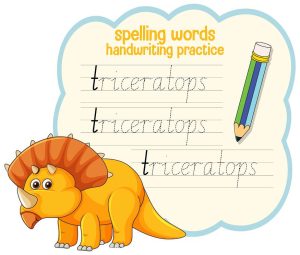IB vs ICSE: Which Board is Better for Your Child?

In the current world, the significance of having a proper educational background can no longer be ignored. As a child grows up parents become anxious about his/her education and invest a great amount of time and money for a proper academic upbringing. Apart from schools and textbooks, a great question that comes up is which academic board they should enrol their child. There have been multiple options in India when it comes to educational boards since the introduction of the modern education system by Lord Thomas Babington in 1830. Quite popular among them are two educational boards, the Indian Certificate School Education (ICSE) and the International Baccalaureate (IB) boards. You must have heard about them and if you are currently caught up in the IB vs ICSE dilemma then worry no more! Today, let’s understand the difference between ICSE and IB boards, shall we?
A brief overview of the IB board
The International Baccalaureate (IB) educational board, set up by a non-profit Swedish organization called the International Baccalaureate Organization (IBO) has nearly six thousand schools across 159 countries. It offers four different academic curricula to students namely the primary years program (for kids up to the age of 5), the middle years program (for kids of 6 to 10), the diploma program (for students of class 11 and 12) and the career-related program (for students in between the age of 16 to 19). It was set up in 1976 and aims to impart a world-class education to foster inclusivity, intellectual enlightenment and harmony among its students.
A brief overview of the ICSE board
The Indian School Certificate Education (ICSE) is managed by the Council of the Indian School Certificate Examination (CISCE). Like the IB board, the ICSE board is also a private educational board that looks after the academic curricula up to standard 10. After that class 11 and class 12 are looked after by the ISC (Indian School Certificate). The ICSE board is based on the old educational concept introduced by the British in India and is largely followed in some of the oldest schools of India. It follows the 1986 educational policy guidelines of India.
IB vs ICSE: who wins?
IB or ICSE, which one is better? Well, that’s a tricky question but let’s explore some of the avenues to get a clearer understanding to answer this question.
- Recognition
- Preparation for higher education in Universities
- Curriculum
- Cost
IB schools have a worldwide presence while there are only a few ICSE schools outside India. However, there are only a few hundred IB schools in India (the numbers are expected to increase in future) while there are several thousands of ICSE schools in India. Therefore, in India, the ICSE board wins the fight! Still, you might want to educate your child in a world-class educational setting and find the British system but backdated, in that case, do remember that since there are few IB schools there might be problems if your child needs to apply for a transfer. In that case, you might have to change the education board of your child. This is because the city that you move to might not have any IB schools. Changing the education board always creates problems as different boards have different techniques of imparting education. Your child might have a hard time getting accustomed to the new setting and as a result, his/her academic grades might fall.
As the IB board is internationally recognized, students who are trained under this board are readily accepted by several foreign universities. On the other hand, ICSE is also recognized by a few foreign bodies like England’s UCAS (Universities and College Admission Services). However, the international popularity of ICSE is lower than the IB, therefore IB students will have wider choices. This is because the IB board offers curricula in Spanish and French apart from English while the ICSE board exclusively teaches in English. For enrolling in certain foreign universities of some developed countries your child must know their language. On the other hand, ICSE is quite helpful for enrolling in all Indian universities. ICSE students usually have a strong background in English, and this helps them prepare for English proficiency exams like the IELTS and the TOEFL.
Both boards offer an in-depth knowledge of the various subjects that are being taught to the students. However, ICSE students get a higher liberty in choosing their subject combination while the IB students have less flexibility in doing that. Therefore, the ICSE students might find their curriculum much easier than the IB students. The IB students on the other hand receive a greater exposure to global knowledge. The ICSE board gives the same weightage to all subjects while the IB board has different classifications. The IB board aims to give research exposure to the students by offering the DP core along with six subjects. The DP core comprises creative and research projects and a theory of knowledge that is intended for the holistic intellectual development of the student.
IB schools could be a hard hit to your pocket! The average annual cost of studying at an IB school could range somewhere between 4 and 5 lakhs excluding the transportation costs whereas the ICSE schools could cost you around sixty thousand to one lakh.
Both education boards offer top-notch education in the county. At the end of the day, a strong educational foundation depends on the discipline and sincerity of the student. If your kid studies well he/she could crack every competitive exam on earth. Therefore, both boards are good and which one to go for depends on your personal preference. However, just one piece of advice, once you choose a board don’t go on to change it in the middle of the years as your kid will have a hard time coping and you don’t want that.
The ICSE board does have several advantages over IB schools ranging from their wide availability to reasonable annual fees. Speaking of which, have you heard about Billabong High International School? It is an ICSE school starting from playschool to class 12 and employs a highly qualified teaching force to train your child in the best way possible. Contact today to know more about them.








